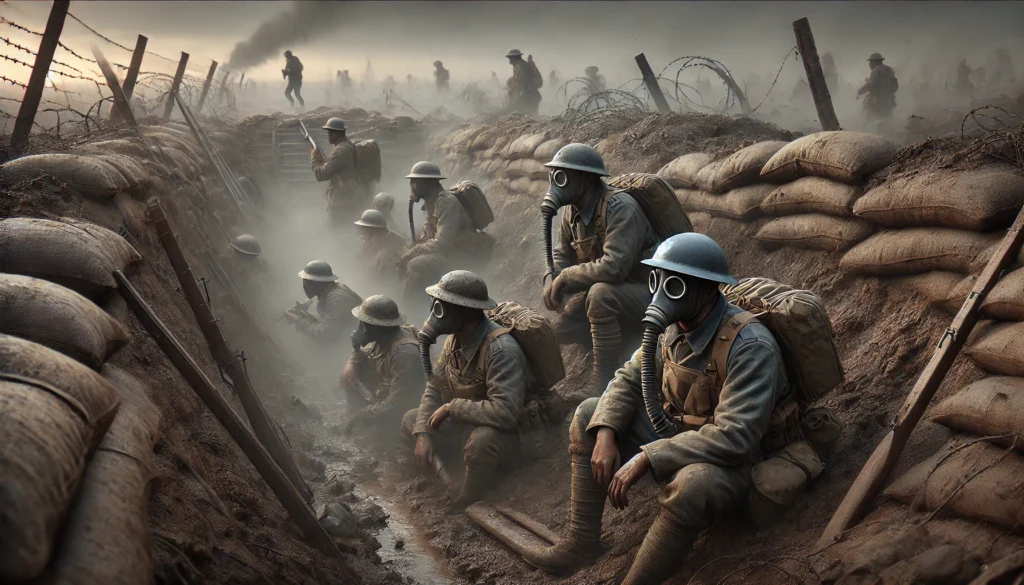Fun Fact: Fritz Haber’s invention of synthetic ammonia production feeds nearly half the world’s population today!
Have you ever wondered how the world feeds billions of people despite limited farmland? Meet Fritz Haber, the man behind one of the most impactful scientific discoveries of the 20th century. Born in 1868, Haber was a German chemist whose work revolutionized agriculture but also left a controversial legacy. His contributions to chemistry have had profound effects on both humanity’s survival and its darkest moments. Let’s dive into his fascinating and complex life story.
The Breakthrough That Changed the World
In the early 1900s, the world faced a critical challenge: a shortage of natural nitrogen sources essential for crop growth. Haber’s genius lay in solving this issue by synthesizing ammonia (NH₃) from atmospheric nitrogen (N₂) and hydrogen (H₂). This process, known as the Haber-Bosch method (co-developed with Carl Bosch), allowed the mass production of fertilizers.
Why it matters:
- Before this invention, agriculture relied heavily on limited natural sources like guano (bird droppings) or sodium nitrate from mines in South America.
- Today, synthetic fertilizers derived from Haber’s method sustain approximately 50% of the global food supply.
Case Study: India, with its Green Revolution in the 1960s, massively increased food production using fertilizers enabled by the Haber-Bosch process. This innovation saved millions from famine and turned India into a self-sufficient agricultural powerhouse.

The Controversial Side of Genius
While Haber’s work fed millions, it also fueled destruction. During World War I, he led Germany’s chemical warfare program, overseeing the development and deployment of chlorine gas, marking the first large-scale use of chemical weapons. Haber’s role earned him the nickname “Father of Chemical Warfare.”
Anecdote: Haber’s wife, Clara Immerwahr, was also a chemist and an outspoken critic of his work on chemical weapons. She tragically took her life in protest, highlighting the moral dilemmas surrounding his legacy.
Ethical Dilemma: Haber believed in the duality of science: it could save or destroy depending on its use. His statement, “In peace, for humanity—in war, for the Fatherland,” reflects his internal conflict.
Legacy: Hero or Villain?
Haber’s legacy is a paradox. On one hand, he is celebrated as a hero of agriculture, earning the Nobel Prize in Chemistry in 1918 for pioneering the synthesis of ammonia. On the other, his involvement in chemical warfare and his later work on pesticides used in concentration camps tarnished his reputation.
Impact Beyond Agriculture:
- The Haber-Bosch process is also critical in industrial applications like explosives manufacturing.
- His work laid the groundwork for advancements in chemical engineering and catalysis.
Modern Relevance:
With the current global focus on sustainable farming and reducing carbon emissions, Haber’s invention faces criticism for its environmental impact. Fertilizer production is energy-intensive and contributes to greenhouse gas emissions. Efforts are underway to make the process greener, maintaining its benefits while minimizing harm.
Conclusion
Fritz Haber’s life is a compelling story of brilliance, controversy, and duality. His contributions to science are undeniable, feeding billions and shaping industries. Yet, his involvement in chemical warfare and environmental concerns leaves an indelible stain. As we reflect on Haber’s legacy, we’re reminded of the power and responsibility that come with scientific discovery.
https://www.youtube.com/watch?v=KnaDmP71UHc&pp=ygU4RnJpdHogSGFiZXIgVGhlIENoZW1pc3QgV2hvIEZlZCB0aGUgV29ybGQgYW5kIEZ1ZWxlZCBXYXI%3DWhat are your thoughts on balancing scientific progress with ethical considerations? Share your perspective in the comments below!
Author’s Note:
As a science enthusiast, I find Fritz Haber’s story both inspiring and cautionary. It’s a testament to how science can transform the world—for better or worse. Let’s continue to use knowledge responsibly for the greater good.
G.C., Ecosociosphere contributor.




